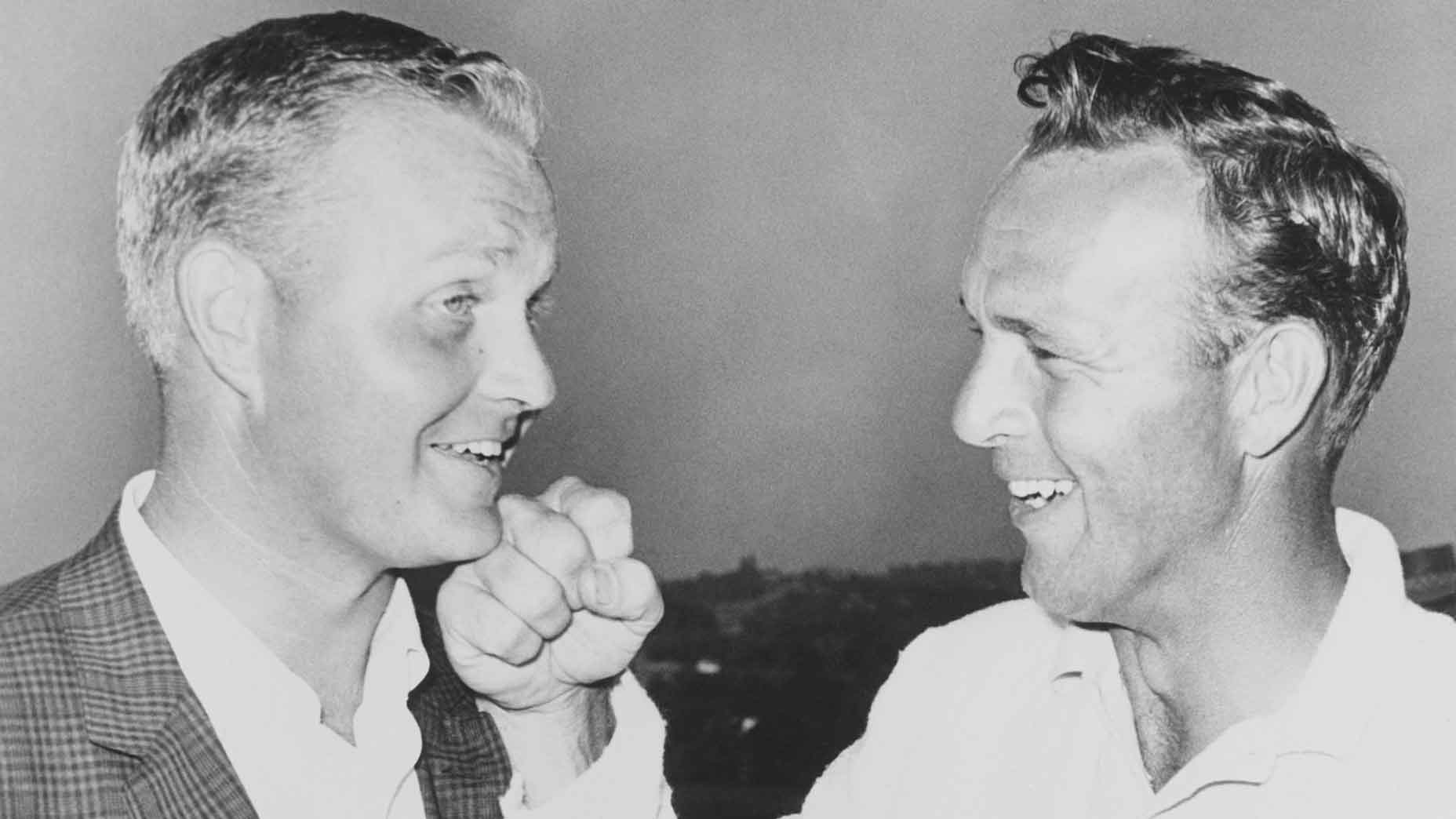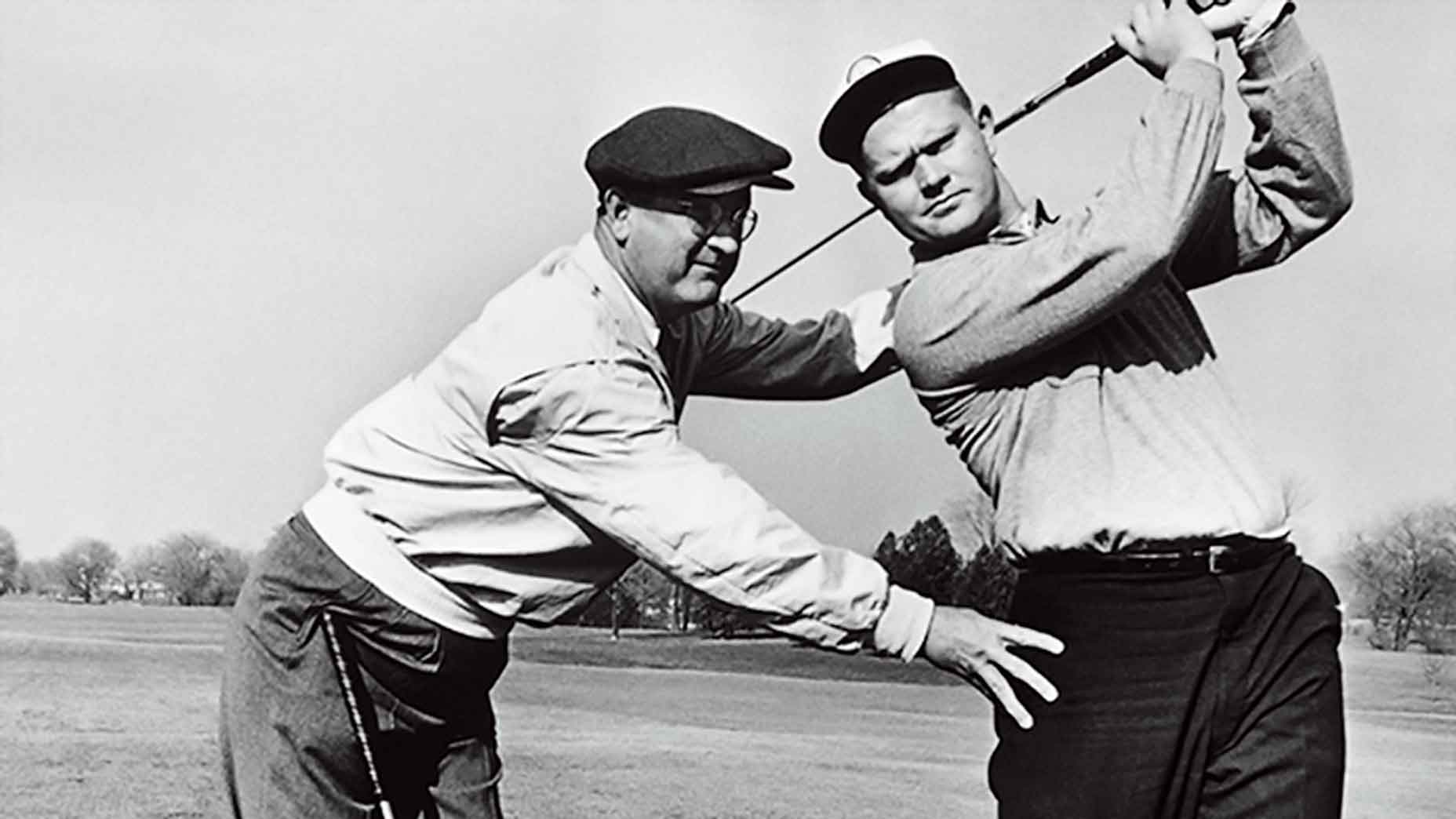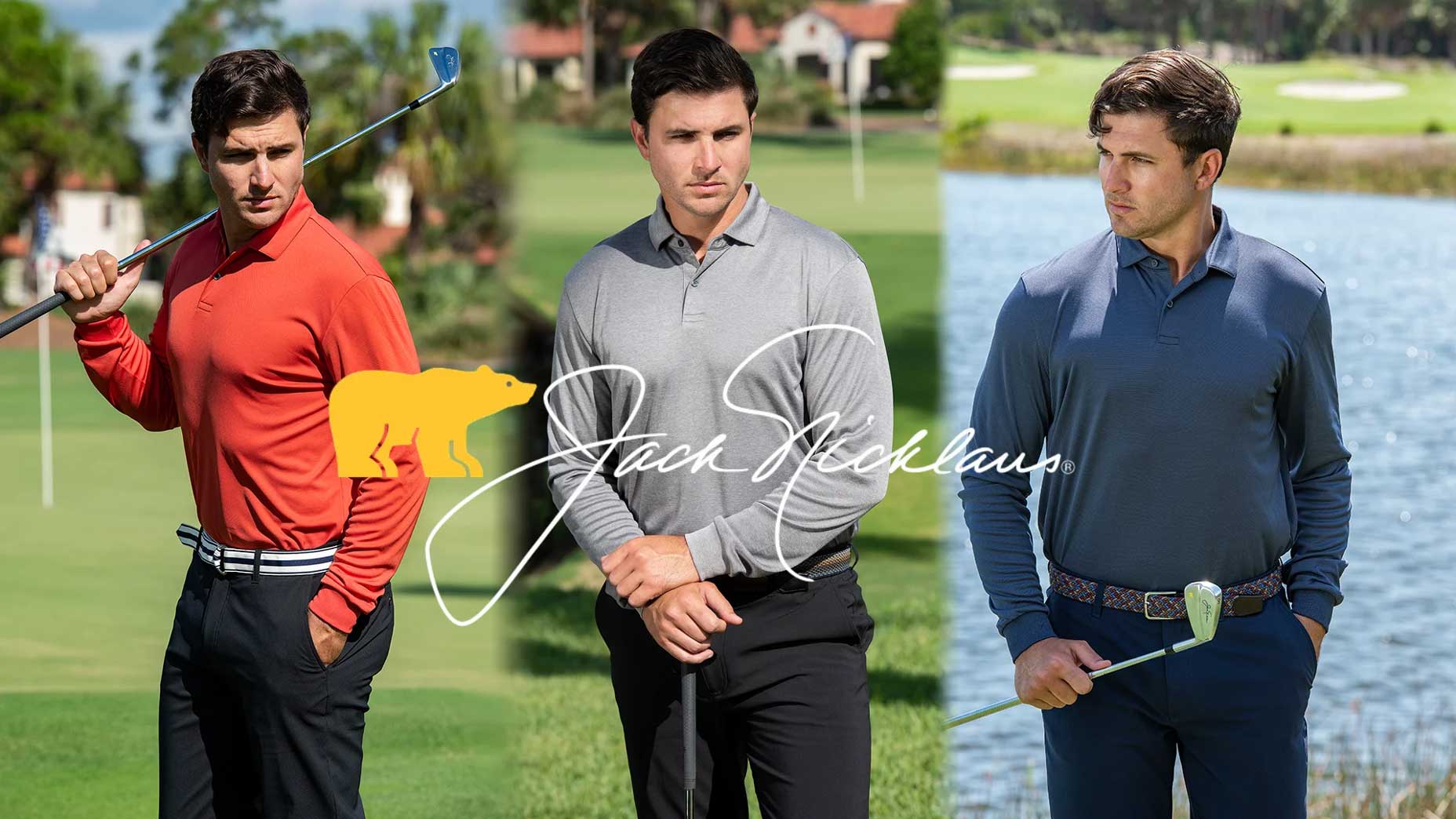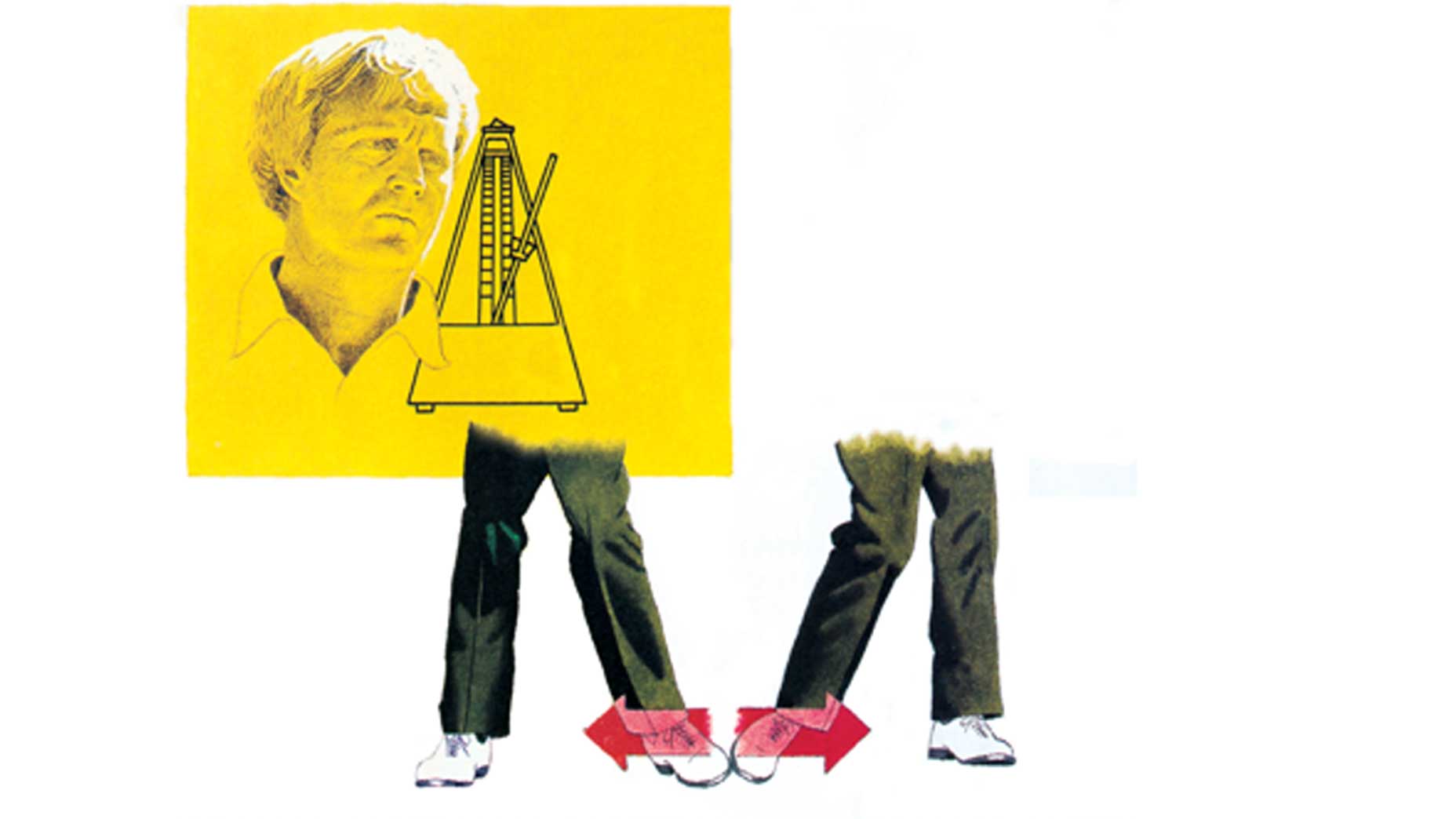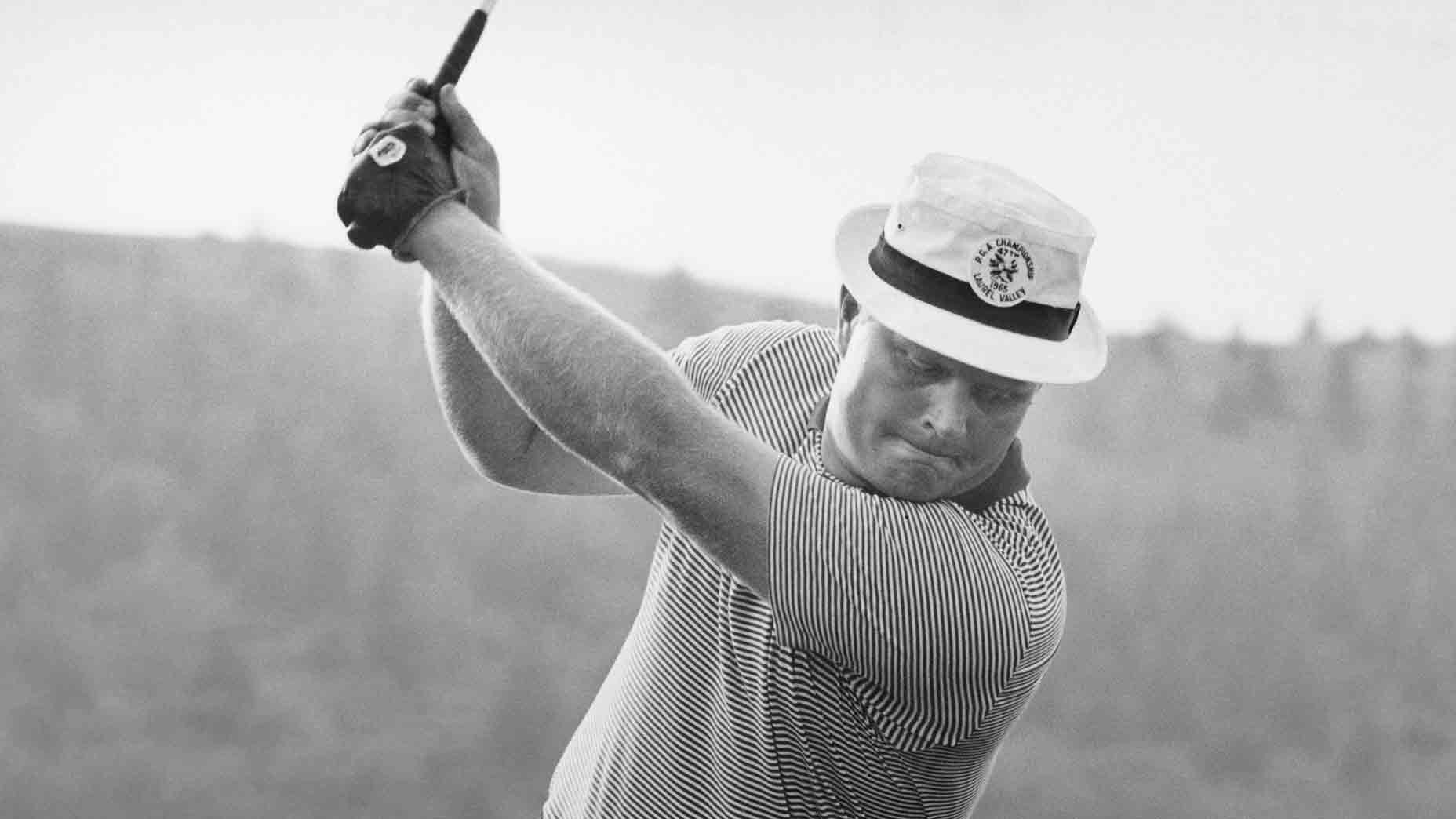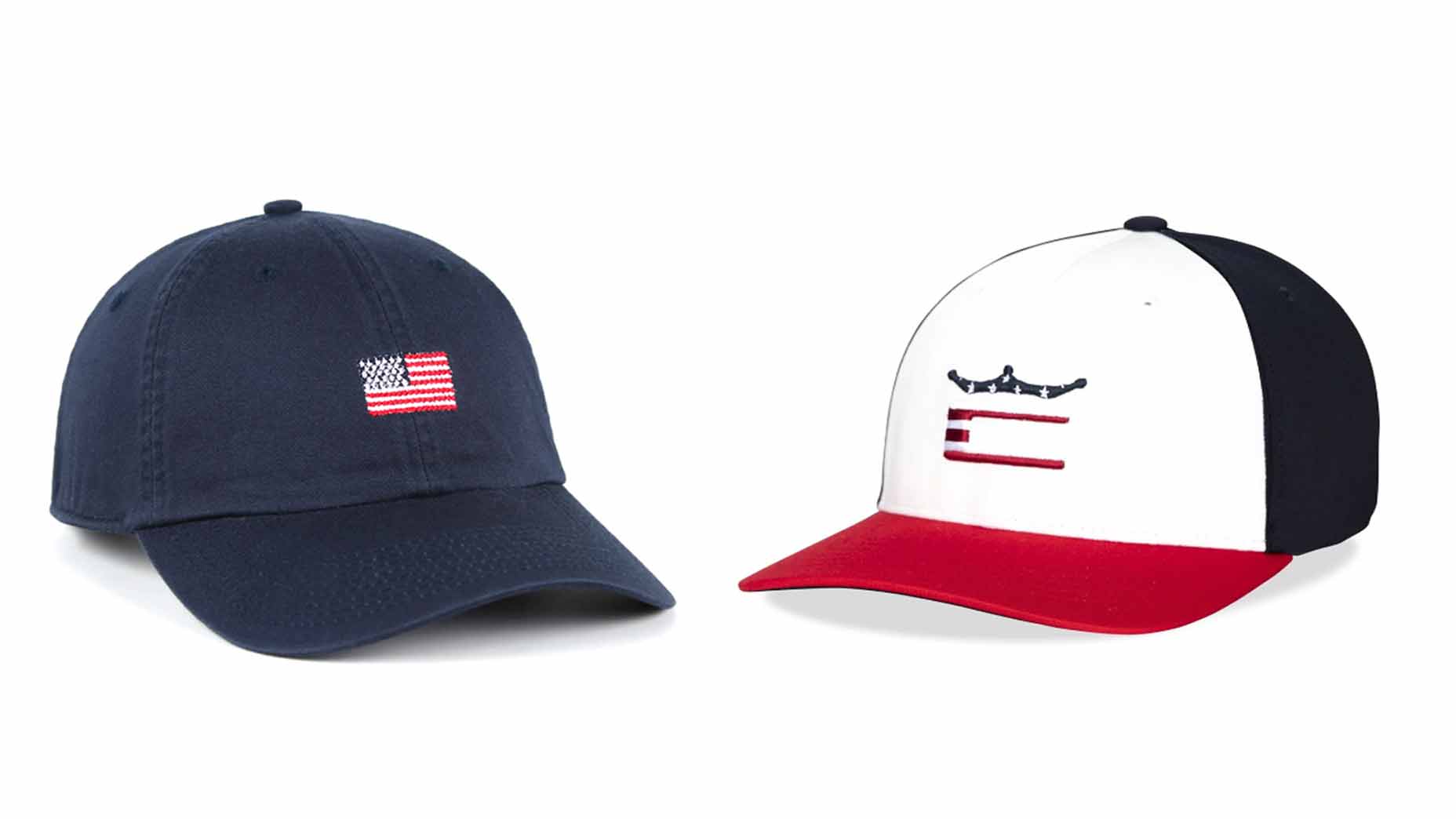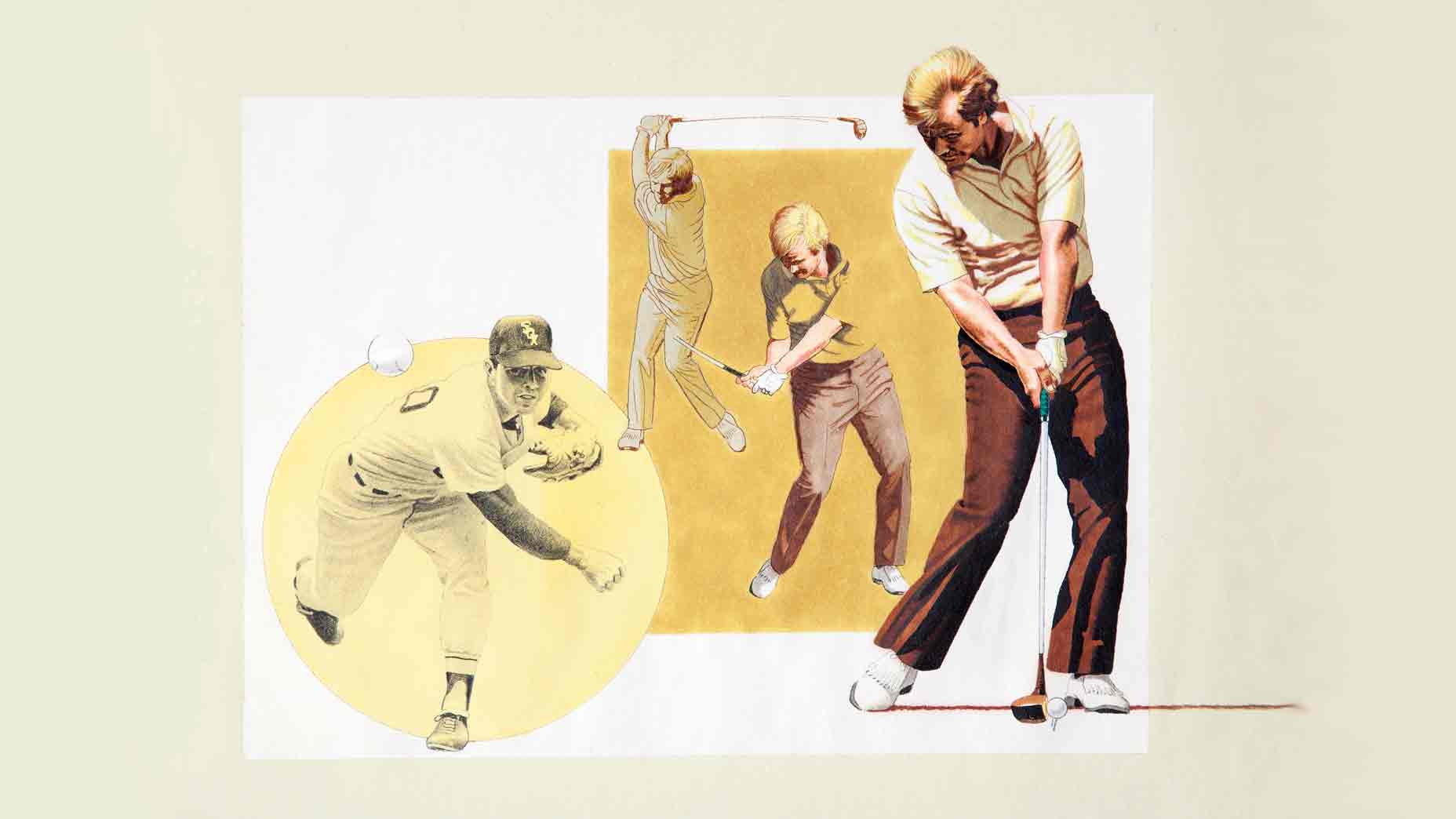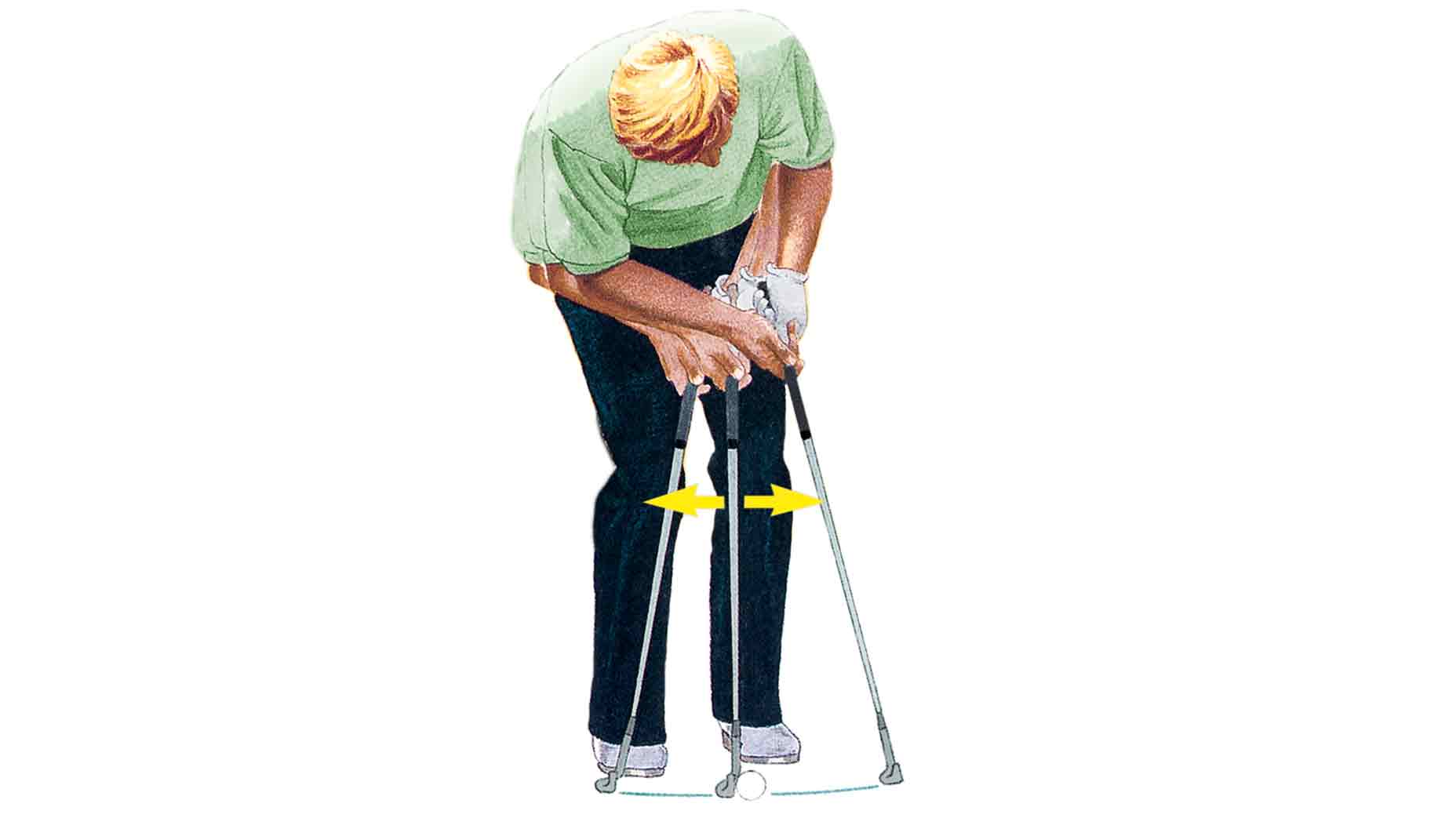Jack Nicklaus had many guiding lights in his life. Near the top of the list: his father, Charlie
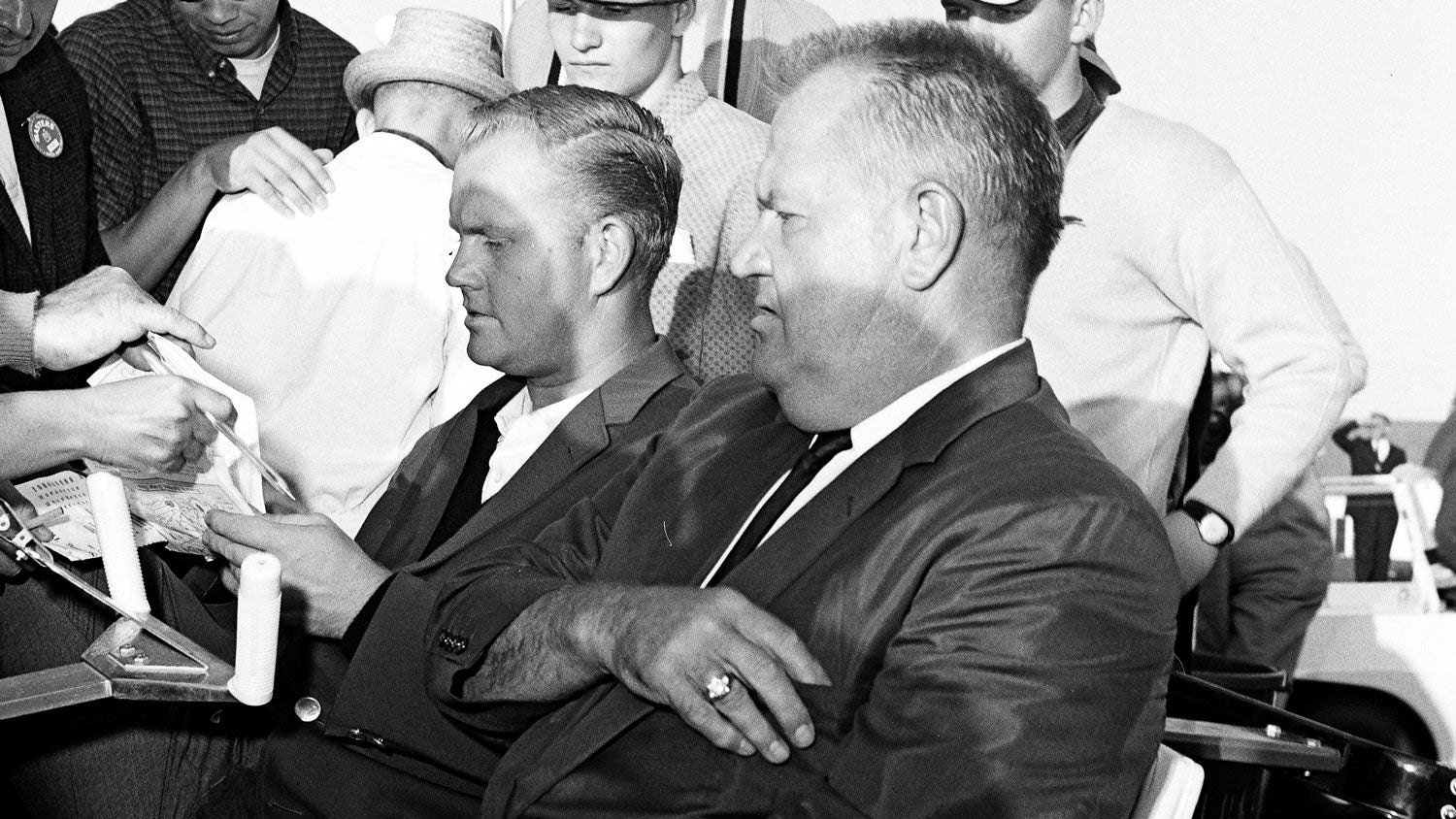
Jack Nicklaus, left, with his father, Charlie, at the 1963 Masters.
getty images
Jack Nicklaus didn’t play in the PNC Championship, the old Father-Son event, this year, but if he was watching, Nicklaus no doubt enjoyed seeing Tiger Woods out there with his son, and his old pals Tom Watson and Lee Trevino playing with their sons. Gary Player was in the field, too, with his grandson, Jordan.
Another Nicklaus also likely would have been fond of the cross-generational event: Charlie Nicklaus, Jack’s father. Charlie would have loved not only watching the PNC but also playing in it, alongside the son he helped to fall in love with the game.
Charlie liked competing in anything growing up in Columbus, Ohio, and he liked just about every sport. He was the city tennis champion a couple of times, and he taught Jack just enough tennis to make him dangerous. Charlie played every sport with a ball, including recreational volleyball as a young man.
One night, Charlie broke his ankle playing volleyball and that led to Jack’s own start in golf. At first, Charlie thought it was just a sprain but later he learned it was broken. He had three fusion operations. His doctor said something along the lines of, “You better take up something that will make you walk or you’ll be in a wheelchair.”
Charlie had played golf as a kid but hadn’t played for 15 years. He was a young father himself at this point. He took up golf again. Jack was 10.
Charlie couldn’t get a game then, because his walking was so labored. Jack would go out there with him and carry the bag. He’d play a hole and then sit for a while. Young Jack would chip and putt. That was his first exposure to golf. Jack’s father said to him, “Do you want to learn this game?”
Scioto Country Club had a new pro that summer, Jack Grout, who had come to Columbus by way of Hershey (Pa.) Country Club. Jack joined a junior clinic, one with about 60 kids in it. Grout became like a second father to Jack. He and Charlie were close. Jack was always Jackieboy to Mr. Grout, though Jack often called him J. Grout.
Playing sports growing up, Jack followed his father’s example. He played everything. Charlie had lettered in football, basketball and baseball at South High School in Columbus. He started the golf team there.
At Ohio State, where Charlie was enrolled in the College of Pharmacy, he continued to play football, basketball and baseball. This was in the 1930s. Different times.
On weekends, Charlie played professional football under an assumed name for a team in Portsmouth, Ohio, the Portsmouth Spartans. He might have made $30 or $40 a game — a lot of money. Pro football was a new thing. In 1934, the Spartans became the Detroit Lions.
Charlie encouraged Jack to play every sport in its season, and he introduced his son to every sport he had played.
In high school, Jack was a quarterback in football who struggled to handle a wet ball, a slow guard with a good shot in basketball and a catcher in baseball. Golf was his summer game. He actually got recruited to play basketball by Ohio State. The school had some good teams in those years, with a rising star named John Havlicek. Jack’s best sport was probably baseball. But golf was the one he liked the best, in part because it meant time with his father.
Charlie and Jack spent a lot of time together. Jack helped out in the pharmacy, stocking the shelves, straightening the magazines, sweeping the floors. Juniors could play at Scioto C.C. before 8 a.m. and after 4 p.m. Some afternoons, Charlie and Jack would slip out for nine holes before dinner.
One day, they were on the 15th hole at Scioto. Jack hit an 8-iron into a greenside bunker. The next thing in the air was his 8-iron, which went nearly as far as his ball.
His father said, “Pick up your club. Pick your ball.” They walked in from there. Charlie said, “If that happens again, you’ll never see another golf course.” Jack learned his lesson.
Some years later, Jack was at Spyglass, playing with his eldest son, Jackie. This was in 1972, when the U.S. Open was at Pebble Beach. Jackie was 10. He was banging clubs and hitting trees. That day, Jack said pretty much to Jackie what his father had said to him. Jack never had to say anything like that to Jackie a second time. Jackie became a good amateur golfer, and always carried himself like a true sportsman.
Charlie’s hero, growing up, was Bobby Jones, the great amateur golf who won his first U.S. Open in 1923. He won his second U.S. Open in 1926, at Scioto. Charlie was hanging on his every shot. Jones parted his hair in a distinctive way, so Charlie did the same. Jones wore plus-four knickers, so Charlie did the same. Charlie was about 11 years younger than Jones. Jones was born in 1902 and Charlie was born in 1913.
Jack got to know Jones quite well, through amateur golf and by playing the Masters. Jones had a temper himself as a teenager and as a young hot-shot amateur. In time, he became known for his grace under pressure and for his keen sense of sportsmanship, when he won and when he lost. That made a big impression on Charlie.
Charlie taught Jack how to be a good sport. He truly believed in the old saying, It’s not whether you win or lose, but how you play the game. Charlie would say, “I don’t care what your feeling is inside. If the other guy wins, make him believe you’re happy for him. Look him in the eye, give him a firm handshake and say, ‘Well done.’ Now if you want to go in the locker room and beat your head against the wall? That’s your choice.”
Charlie died too young, at 56, from pancreatic cancer. That was in 1970. Jack was 30. But father and son made the most of their years together.
In 1970, Jack and his wife, Barbara, moved into the house where they live now, in South Florida. Their kids were young, and Jack bought a couple of other lots nearby, where the youngsters could play with their friends. There were about 35 kids in the neighborhood. They would have these decathlons, every sport you could imagine. Basketball, tennis, running races, punting competitions, you name it. Jack relished being out there with them, trying to keep up.
This article is the latest installment of the Golden Rules series, produced by Jack Nicklaus in association with Generational Group. Read more about the partnership here.


